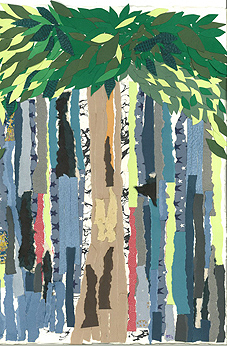Rethinking the Global SouthMukoma Wa Ngugi
The goal is not to sublimate or ignore the West – far from it. Indeed the West – simply because of colonialism and globalization – is a huge part of the dialogue. The goal is to be in relation with the West as with everyone else. Following Glissant, we are simply saying that there are other ways of knowing and relating. And that these other ways of knowing and relating have always been there – that is to say, they are historical and at the same time ongoing, and to ignore them is to approach the world with one intellectual hand tied behind our backs. The idea is not to look for what Glissant calls “ideological stability“ (32). To think about South-to-South relations is to enter a place of great intellectual vulnerability. Once we leave the relationship of, let’s say, Africa and Europe via colonialism, the world suddenly becomes very vast, complicated, and scary as the knowledge of how just little we know settles in. Yet, this place that is just outside our comfort zone is a beautiful place to be in – it’s a place of discovery of new ideas and seeing old ideas anew. The goal of the Global South Cultural Dialogue Project, then, is to facilitate conversation among writers and scholars from Africa, the Middle East, Latin America, and Asia as well as minority groups in the West. Through such a dialogue, we can learn how our different societies have responded to each other, and to questions of language, identity, and the role of culture in the work of decolonization and a contested globalization. The hope is to encourage an honest discussion about the complex ties that bind the South to the South and to help imagine and create a more democratic and egalitarian global culture. At the same time we want the ideas and discussions emanating from this project to be public, to be in public spaces and to be publicly debated, as opposed to remaining locked up in academic journals. Imagine a scenario where you are in a bus in India and the person sitting next to you is reading a newspaper column written by someone from Latin America. Or you are in a bar in Nairobi and you overhear a discussion about Afro-Latino literature, or language and identity in Latin America and how they relate to Africa. Pages: 1 2 3 4 5 6 |
Essays in this ForumRethinking the Global South
by Mukoma Wa Ngugi From Indian Literature to World Literature: A Conversation with Satya P. Mohanty by Rashmi Dube Bhatnagar and Rajender Kaur Asia in My Life by Ngugi wa Thiong'o The Global South and Cultural Struggles: On the Afro-Asian People’s Solidarity Organization by Duncan Mceachern Yoon The Fault Lines of Hindi and Urdu by Sanjay Kumar Reframing Colonialism and Modernity: An Endeavour through Sociology and Literature by Gurminder K. Bhambra Varieties of Cultural Chauvinism and the Relevance of Comparative Studies by Tilottoma Misra Literature to Combat Cultural Chauvinism: A Response by Shivani Jha Is There an Indian Way of Thinking about Comparative Literature? by E. V. Ramakrishnan Modernity and Public Sphere in Vernacular by Purushottam Agrawal West Indian Writers and Cultural Chauvinism by Jerome Teelucksingh Oral Knowledge in Berber Women’s Expressions of the Sacred by Fatima Sadiki |
